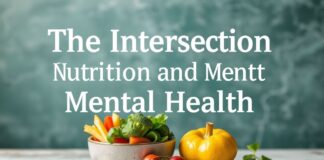Are you finding yourself spending more time in the bathroom than usual? Many TikTok posts are shedding light on the fact that you are not alone. Young individuals, particularly women, are taking to social media to discuss gastrointestinal issues like irritable bowel syndrome and chronic bloating. Experts believe that this open conversation is beneficial as it encourages others to seek help for a topic that has long been considered taboo. However, it is crucial to be aware that many individuals are being paid to endorse products that may not be backed by scientific evidence, leading to widespread misinformation.
Medical professionals emphasize the importance of addressing digestive discomfort in the right way. While it is unclear whether there has been a significant increase in digestive problems overall, some experts attribute the trend to heightened anxiety levels following the pandemic, especially among an already anxious generation. Extensive research has shown that the brain and gut are interconnected through the nervous system. This means that feelings of anxiety or depression can impact the functioning of the gastrointestinal tract, making it harder for it to operate effectively.
The exact causes of irritable bowel syndrome remain unknown, but experts agree that the nervous system plays a significant role in the condition and that stress can exacerbate symptoms. Dr. Nina Gupta, a gastroenterologist from Chicago, often finds that managing her patients’ conditions involves addressing their mental well-being. Dr. Uma Naidoo, the director of nutritional and lifestyle psychiatry at Massachusetts General Hospital, highlights the importance of seeking further evaluation if there are sudden changes in bowel habits. If you notice blood in your stool or experience persistent diarrhea for more than a couple of weeks, it is essential to seek medical attention promptly.
Dr. Naidoo suggests that incorporating mindfulness practices such as stress management, meditation, and breathwork can be beneficial. Making dietary adjustments, identifying and avoiding food sensitivities, and increasing physical activity may also help alleviate IBS symptoms. She recommends gradually introducing probiotics and fermented foods into your diet, as well as finding ways to manage stress effectively. However, if symptoms worsen or become unmanageable at home, it is crucial to seek professional help.
In conclusion, being mindful of your digestive health and seeking appropriate medical advice when needed can help you manage gastrointestinal discomfort effectively. By understanding the connection between your mental and physical well-being, you can take proactive steps to improve your overall health and well-being. Remember, your health is a priority, so don’t hesitate to reach out for professional support when necessary.


















